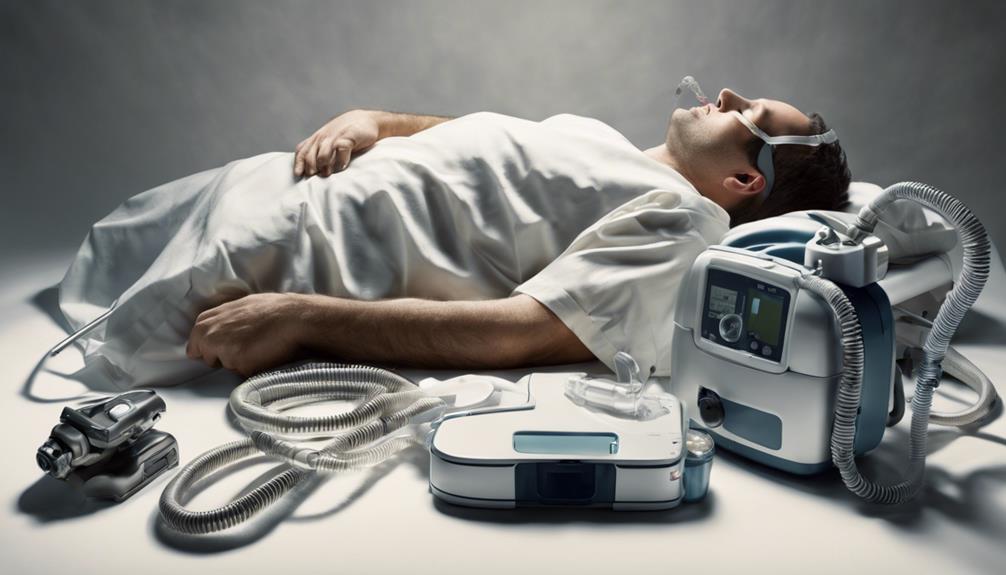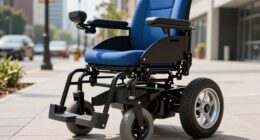Caregiving experience involves providing hands-on support to individuals facing chronic illnesses, disabilities, or age-related challenges. While it may not meet the criteria for formal clinical experience, it plays an essential role in enhancing your communication, empathy, and problem-solving skills within the healthcare field. Many caregivers develop valuable insights into patient needs and the healthcare system. If you're curious about how this experience compares to formal roles, there's plenty more to explore on this topic.
Key Takeaways
- Caregiving experience involves providing hands-on support for individuals who are elderly, disabled, or chronically ill, enhancing personal care and emotional assistance.
- It can be informal, such as support from family or friends, or professional, highlighting its significance in the healthcare landscape.
- Caregiving helps develop essential skills like communication, problem-solving, and emotional intelligence, valuable in both personal and professional contexts.
- While caregiving offers important insights into patient care, it is typically considered informal and may not qualify as formal clinical experience.
- Caregiving enhances healthcare applications by demonstrating commitment to patient care, but it's crucial to distinguish it from supervised clinical training.
Understanding Caregiving Experience
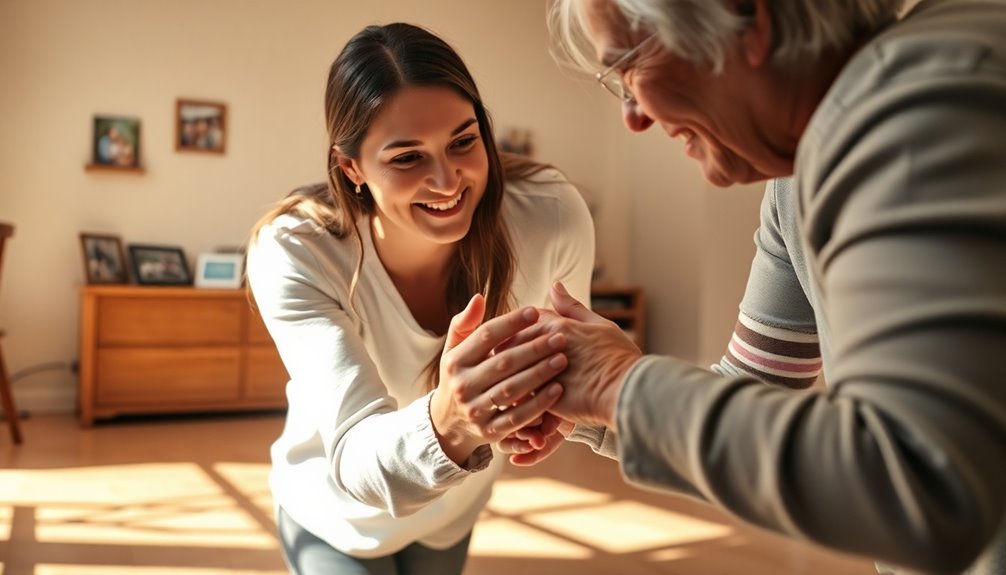
Understanding the caregiving experience is essential, especially since it directly impacts those who are elderly, disabled, or chronically ill. You provide hands-on support through tasks like personal care, medication management, and emotional assistance.
While many caregiving roles are informal, often involving family or friends, professional caregiving can enhance your clinical skills in healthcare settings. This experience is recognized as valuable, helping you develop significant abilities like compassion, communication, and problem-solving.
Some healthcare programs and employers even regard caregiving as clinical experience, especially when it includes direct patient interaction. Documenting your caregiving journey can set you apart in health professions, demonstrating your commitment to patient care and your understanding of the challenges faced by vulnerable populations.
The Role of Caregiving in Healthcare

Caregiving plays an essential role in the healthcare landscape, bridging the gap between patients and the medical system. When you provide assistance to individuals with chronic illnesses or age-related challenges, you gain invaluable experience that many healthcare programs recognize as clinical.
Your responsibilities often include administering medications, monitoring health conditions, and helping with daily living activities. This hands-on experience enhances your interpersonal skills, making you more effective in patient care.
Furthermore, caregiving offers insights into the healthcare system from a patient and family perspective, fostering empathy and understanding. With about 53 million people in the U.S. providing unpaid care, it's clear that caregiving is vital to the overall healthcare ecosystem, shaping the future of healthcare professionals.
Skills Developed Through Caregiving
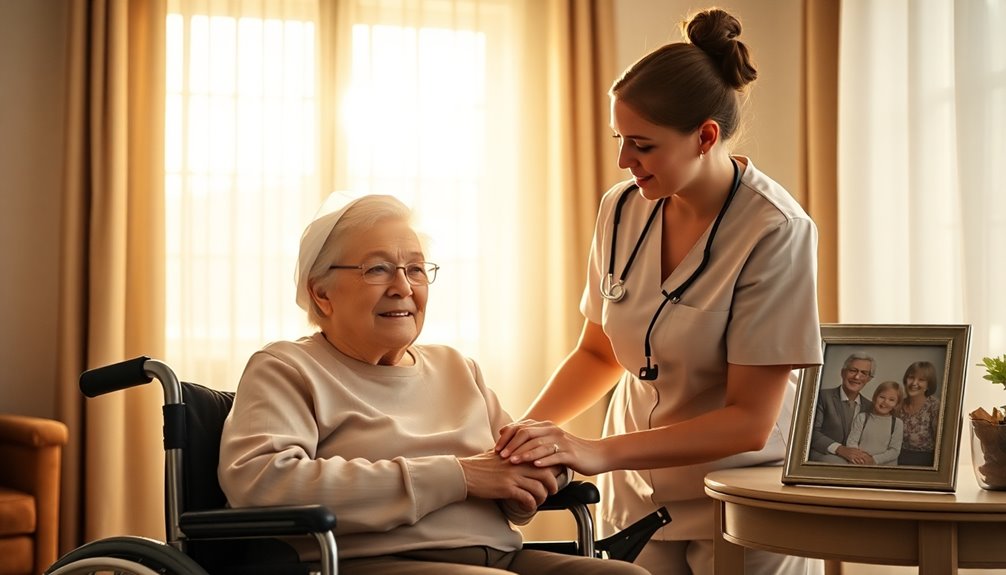
Steering through the complexities of caregiving sharpens a variety of essential skills that are invaluable in both personal and professional settings. You'll enhance your communication skills as you convey crucial information to patients and professionals. Problem-solving abilities grow as you maneuver through challenging situations, making critical decisions about care. Emotional intelligence develops, allowing you to manage your emotions while being attuned to those you care for. Time management skills sharpen as you balance multiple responsibilities efficiently. Finally, caregiving fosters resilience and adaptability, preparing you for unpredictable challenges. Additionally, the experience of caregiving can deepen your understanding of emotional intelligence, which is vital for building strong connections with others.
| Skill | Description | Application |
|---|---|---|
| Communication | Effectively conveying information | Patient interactions |
| Problem-Solving | Maneuvering through complex situations | Decision-making in care |
| Emotional Intelligence | Managing emotions and sensitivity | Supporting patients |
| Time Management | Prioritizing tasks and responsibilities | Daily caregiving tasks |
Caregiving vs. Formal Clinical Experience
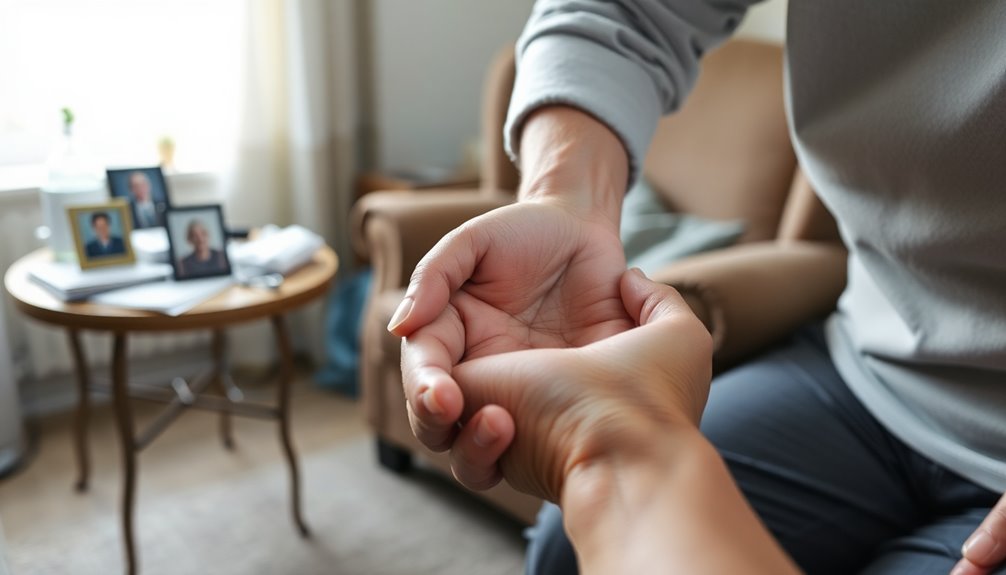
While both caregiving and formal clinical experience play significant roles in healthcare, they differ markedly in structure and supervision.
Caregiving often involves providing personal care to individuals with chronic illnesses or disabilities, which helps you develop essential skills relevant to clinical settings. However, it's usually considered informal experience and mightn't meet the strict criteria required for certain healthcare programs.
In contrast, formal clinical experience encompasses hands-on training in supervised environments like internships or clinical rotations, ensuring you work alongside licensed professionals.
While caregiving can enhance your application by showcasing your commitment to patient care, it's important to clarify its distinction from formal clinical roles to potential educators and employers.
This understanding can strengthen your overall healthcare profile.
The Impact of Caregiving on Personal Development

Many people don't realize how profoundly caregiving can shape personal development. By supporting individuals with health challenges, you cultivate empathy, patience, and emotional resilience.
You'll find that your communication skills improve as you learn to effectively interact with patients, families, and healthcare professionals. Engaging in caregiving also hones your problem-solving abilities and adaptability, essential as you navigate diverse needs and situations.
As you reflect on your feelings while caring for others, you gain self-awareness and enhance your emotional intelligence. The challenges you face provide a sense of purpose and fulfillment, contributing positively to your overall growth and life satisfaction.
Ultimately, caregiving not only impacts those you help but also profoundly enriches your own personal journey.
Frequently Asked Questions
Does Caregiver Count as Clinical Experience?
Yes, caregiving does count as clinical experience.
When you provide support to individuals with chronic conditions, you engage directly with patients, honing skills like communication and empathy.
Many healthcare programs recognize this experience as valuable, often counting it toward required clinical hours.
What Is Considered Caregiving Experience?
Caregiving experience involves providing hands-on support to individuals who need assistance with daily activities or medical tasks.
You might help with basic hygiene, meal preparation, medication management, or emotional support.
This experience can come from various roles, such as being a personal care aide or a family caregiver.
It requires compassion and practical skills, making it valuable for anyone looking to enter healthcare or related fields, even if it isn't always classified as formal clinical experience.
Is Being a Care Aide a Clinical Experience?
Did you know that over 40 million Americans provide unpaid care to adults?
Being a care aide absolutely counts as clinical experience. You're directly involved in patient care, assisting with daily activities and managing medication, which hones your skills in a real-world setting.
This hands-on experience not only enhances your understanding of patient dynamics but also helps you develop essential communication skills crucial for any healthcare profession.
What Is Considered Clinical Healthcare Experience?
Clinical healthcare experience includes any hands-on roles where you interact directly with patients. This typically means working in nursing, medical assisting, or emergency services.
You're actively involved in tasks like monitoring crucial signs, administering medications, or providing personal care. Fundamentally, if you're engaging with patients and contributing to their well-being, it counts as clinical experience.
Volunteering in hospitals or similar settings can also qualify, as long as you're directly supporting patient care.
Conclusion
In the grand tapestry of healthcare, your caregiving experience is like the glittering thread that holds everything together! It's not just a set of tasks; it's a whirlwind of emotions, skills, and personal growth that rivals the most intense medical training! So, while you might wonder if caregiving counts as clinical experience, remember that it's a powerful foundation. Embrace it, because every moment spent caring shapes you into a healthcare hero ready to conquer the world!





